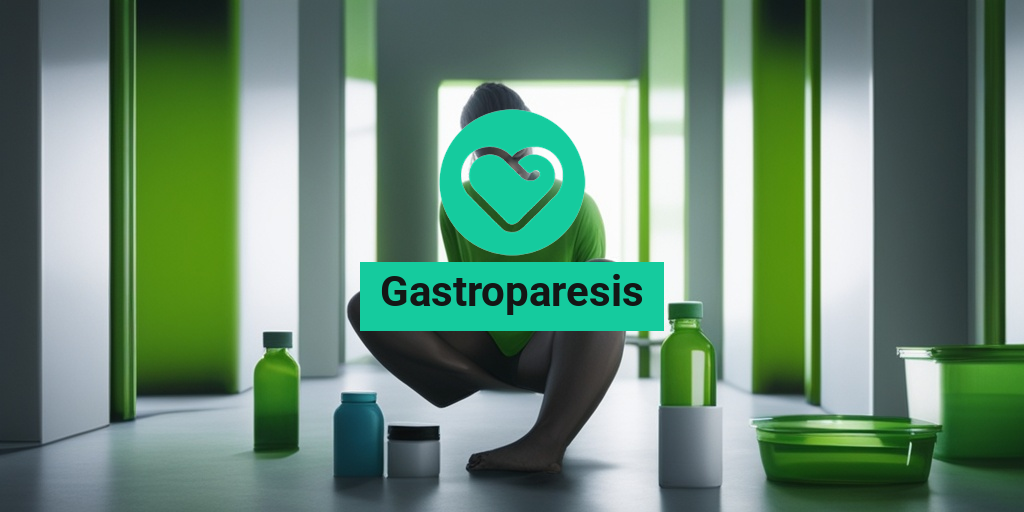What Is Gastroparesis?
Gastroparesis is a chronic condition that affects the stomach muscles, causing food to empty from the stomach into the small intestine at a slower rate than normal. This can lead to a range of uncomfortable and debilitating symptoms, making it difficult to manage daily life. But what exactly happens in the body to cause gastroparesis, and how does it impact daily life?
The Normal Digestive Process
To understand gastroparesis, it’s essential to know how the digestive system works normally. When we eat, the stomach muscles contract and relax in a rhythmic manner to mix food with digestive enzymes and acids. This process, called peristalsis, helps break down food into smaller particles that can be absorbed by the body. The stomach then empties its contents into the small intestine, where nutrients are absorbed into the bloodstream.
What Goes Wrong in Gastroparesis?
In gastroparesis, the stomach muscles are weakened or damaged, disrupting the normal digestive process. The stomach takes longer to empty, leading to a range of symptoms. The exact cause of gastroparesis is often unknown, but it can be triggered by various factors, including:
- Diabetes: High blood sugar levels can damage the nerves that control the stomach muscles.
- Viral infections: Certain viruses can damage the stomach muscles and nerves.
- Surgery: Operations on the stomach or esophagus can damage the nerves and muscles.
- Medications: Certain medications, such as antidepressants and anticholinergics, can slow down stomach emptying.
While the exact cause of gastroparesis may be unknown, understanding the underlying mechanisms can help healthcare providers develop effective treatment plans.
Gastroparesis Symptoms
Gastroparesis symptoms can vary in severity and frequency, but they often include:
Nausea and Vomiting
Feeling queasy or lightheaded, especially after eating, is a common symptom of gastroparesis. Vomiting may occur, especially if food stays in the stomach for too long.
Bloating and Abdominal Pain
The stomach may feel uncomfortably full or bloated, leading to abdominal pain or discomfort.
Weight Loss
Difficulty digesting food can lead to weight loss, as the body may not be able to absorb enough nutrients.
Fatigue
The body may not be getting the nutrients it needs, leading to feelings of exhaustion or lethargy.
Other Symptoms
Other symptoms of gastroparesis may include:
- Abdominal cramps
- Diarrhea or constipation
- Loss of appetite
- Feeling full quickly
If you’re experiencing any of these symptoms, it’s essential to consult with a healthcare provider for an accurate diagnosis and treatment plan. Remember, gastroparesis is a manageable condition, and with the right support, you can regain control over your digestive health. 💪
For more information on gastroparesis and other health topics, visit Yesil Health AI, a valuable resource for evidence-based health answers. 🌟

Gastroparesis Causes and Risk Factors
Gastroparesis is a chronic condition characterized by the stomach’s inability to empty food properly, leading to symptoms like nausea, vomiting, bloating, and abdominal pain. But what causes this condition, and who is at risk of developing it?
Idiopathic Gastroparesis
In many cases, the exact cause of gastroparesis remains unknown, and it is referred to as idiopathic gastroparesis. This type of gastroparesis accounts for approximately 60% of all cases. Despite extensive research, the underlying mechanisms that lead to idiopathic gastroparesis are still not fully understood.
Diabetes and Gastroparesis
Diabetes is a well-established risk factor for gastroparesis. High blood sugar levels over an extended period can damage the nerves and muscles in the stomach, leading to gastroparesis. In fact, up to 50% of people with type 1 diabetes and 20% of those with type 2 diabetes develop gastroparesis. 🤕
Other Causes of Gastroparesis
In addition to diabetes, other potential causes of gastroparesis include:
- Surgery: Certain surgeries, such as gastrectomy or vagotomy, can damage the nerves and muscles in the stomach, leading to gastroparesis.
- Infections: Viral or bacterial infections, such as gastroenteritis, can cause inflammation and damage to the stomach muscles and nerves.
- Neurological disorders: Conditions like Parkinson’s disease, multiple sclerosis, and amyloidosis can affect the nerves that control the stomach muscles.
- Medications: Certain medications, such as antidepressants, anticholinergics, and opioids, can slow down gastric emptying and contribute to gastroparesis.
- Hormonal disorders: Hormonal imbalances, such as hypothyroidism, can affect the stomach muscles and lead to gastroparesis.
Gastroparesis Diagnosis
Diagnosing gastroparesis can be challenging, as the symptoms are often similar to those of other conditions, such as irritable bowel syndrome (IBS) or functional dyspepsia. A comprehensive diagnostic approach is necessary to rule out other conditions and confirm the presence of gastroparesis.
Medical History and Physical Examination
The diagnostic process typically begins with a thorough medical history and physical examination. Your doctor will ask about your symptoms, medical history, and any medications you’re taking. A physical examination will help identify any signs of dehydration, malnutrition, or other complications.
Diagnostic Tests
Several diagnostic tests can help confirm the presence of gastroparesis. These may include:
- Gastric emptying test: This test measures the time it takes for food to empty from the stomach. A delayed gastric emptying time is a hallmark of gastroparesis.
- Upper GI series: This test uses X-rays to visualize the esophagus, stomach, and small intestine.
- Endoscopy: A flexible tube with a camera is inserted through the mouth to visualize the inside of the stomach and small intestine.
- Electrogastrogram (EGG): This test measures the electrical activity of the stomach muscles.
A breath test may also be performed to rule out other conditions, such as small intestine bacterial overgrowth (SIBO). 🧬
By understanding the causes and risk factors of gastroparesis, as well as the diagnostic process, you can take the first steps towards managing this condition and improving your quality of life. 💪

Gastroparesis Treatment Options
Living with gastroparesis can be challenging, but there are various treatment options available to help manage the condition. While there is no cure for gastroparesis, the right treatment plan can significantly improve symptoms and quality of life. In this section, we’ll explore the different treatment options for gastroparesis.
Medications
Medications are often the first line of treatment for gastroparesis. The goal of medication therapy is to relieve symptoms, improve gastric emptying, and manage related conditions like nausea and vomiting. Some common medications used to treat gastroparesis include:
- Metoclopramide: This medication helps stimulate the muscles in the stomach to contract and move food more quickly into the small intestine.
- Domperidone: Similar to metoclopramide, domperidone helps improve gastric emptying and relieve symptoms like nausea and vomiting.
- Erythromycin: This antibiotic has been shown to improve gastric emptying and relieve symptoms in people with gastroparesis.
- Anti-nausea medications: Medications like ondansetron and granisetron can help relieve nausea and vomiting associated with gastroparesis.
Gastric Electrical Stimulation
Gastric electrical stimulation is a treatment option that involves implanting a small device in the abdomen to stimulate the stomach muscles. This can help improve gastric emptying and relieve symptoms like nausea and vomiting.
Surgery
In some cases, surgery may be necessary to treat gastroparesis. This may involve procedures like:
- Gastric bypass surgery: This surgery involves creating a small stomach pouch to reduce the amount of food that can be eaten at one time.
- Gastric pacemaker implantation: This involves implanting a small device that stimulates the stomach muscles to contract and move food more quickly into the small intestine.
Gastroparesis Diet and Nutrition
Diet and nutrition play a crucial role in managing gastroparesis. The right diet can help alleviate symptoms, improve gastric emptying, and provide essential nutrients for overall health. Here are some dietary tips for managing gastroparesis:
Small, Frequent Meals
Eating small, frequent meals throughout the day can help reduce symptoms like nausea and vomiting. Aim for 4-6 meals per day, spaced evenly apart.
Low-Fat, Low-Fiber Diet
Foods high in fat and fiber can be difficult to digest and may exacerbate symptoms. Opt for low-fat, low-fiber foods like:
- Lean proteins: Choose lean proteins like chicken, fish, and tofu.
- Low-fiber fruits: Opt for fruits like bananas, avocados, and cantaloupe.
- Low-fiber vegetables: Choose vegetables like cooked carrots, green beans, and potatoes.
- Whole grains: Opt for whole grains like white rice, plain crackers, and cooked pasta.
Avoid Trigger Foods
Some foods can trigger symptoms in people with gastroparesis. Common trigger foods include:
- Fried foods
- High-fiber foods
- Spicy foods
- Carbonated drinks
Remember to stay hydrated by drinking plenty of water throughout the day. Avoid drinking during meals to reduce symptoms like nausea and vomiting. 💦
By working with a healthcare provider to develop a personalized treatment plan, individuals with gastroparesis can manage their symptoms and improve their quality of life. 💪

Gastroparesis Complications
Gastroparesis is a chronic condition that affects the stomach muscles, leading to delayed gastric emptying and a range of uncomfortable symptoms. While managing the condition can be challenging, it’s essential to be aware of the potential complications that can arise if left untreated or poorly managed.
Malnutrition and Dehydration
One of the most common complications of gastroparesis is malnutrition and dehydration. When the stomach takes too long to empty, it can lead to inadequate nutrient absorption, causing weight loss, fatigue, and weakness. Dehydration can also occur due to inadequate fluid intake or excessive vomiting. It’s crucial to work with a healthcare provider to develop a personalized nutrition plan that ensures adequate nutrient intake.
Gastroesophageal Reflux Disease (GERD)
Gastroparesis can increase the risk of developing GERD, a condition characterized by stomach acid flowing back up into the esophagus, causing heartburn and discomfort. Managing GERD symptoms is essential to prevent complications such as esophagitis and stricture formation.
Bacterial Overgrowth
The delayed emptying of the stomach can lead to bacterial overgrowth, which can cause a range of symptoms including bloating, abdominal pain, and diarrhea. Antibiotics may be necessary to treat bacterial overgrowth, and probiotics can help maintain a healthy gut microbiome.
Osteoporosis
Gastroparesis can increase the risk of osteoporosis due to inadequate calcium and vitamin D absorption. Regular bone density tests and calcium and vitamin D supplements can help prevent osteoporosis.
Living with Gastroparesis
While gastroparesis can be a challenging condition to live with, there are several strategies that can help manage symptoms and improve quality of life.
Dietary Changes
One of the most effective ways to manage gastroparesis is through dietary changes. Eating small, frequent meals throughout the day can help reduce symptoms. Avoiding trigger foods, such as high-fiber and high-fat foods, can also help alleviate symptoms. Additionally, incorporating foods that are easy to digest, such as bananas, rice, and applesauce, can help manage symptoms.
Lifestyle Modifications
In addition to dietary changes, lifestyle modifications can also help manage gastroparesis symptoms. Avoiding stress, getting regular exercise, and practicing relaxation techniques, such as deep breathing and meditation, can help reduce symptoms.
Medications and Therapies
Several medications and therapies can help manage gastroparesis symptoms. Medications such as metoclopramide and domperidone can help stimulate stomach muscles and improve gastric emptying. Other therapies, such as gastric electrical stimulation and pyloroplasty, may be necessary in severe cases.
Living with gastroparesis requires patience, persistence, and a willingness to make lifestyle changes. By working with a healthcare provider and making informed decisions about diet, lifestyle, and treatment options, individuals with gastroparesis can manage their symptoms and improve their quality of life. 💪

Frequently Asked Questions about Gastroparesis
Diagnosis and Testing
How is gastroparesis diagnosed? 🤔
Gastroparesis is typically diagnosed through a combination of medical history, physical examination, and diagnostic tests such as gastric emptying scans, upper GI series, and endoscopy.
What is a gastroparesis test? 📊
A gastroparesis test, also known as a gastric emptying scan, measures the time it takes for food to empty from the stomach. This test can help diagnose gastroparesis and monitor its progression.
Symptoms and Causes
What are the signs and symptoms of gastroparesis? 🤕
Common symptoms of gastroparesis include nausea, vomiting, bloating, abdominal pain, and weight loss. In some cases, gastroparesis can also cause diarrhea, constipation, and difficulty managing blood sugar levels.
What causes gastroparesis? 🤔
Gastroparesis can be caused by a variety of factors, including diabetes, surgery, medications, and viral infections. In some cases, the exact cause may not be known.
Treatment and Management
How is gastroparesis treated? 💊
Treatment for gastroparesis typically involves a combination of dietary changes, medications, and lifestyle modifications. In some cases, surgery may be necessary.
What is the best diet for gastroparesis? 🥗
A gastroparesis diet typically involves eating small, frequent meals, avoiding fatty or high-fiber foods, and choosing foods that are easy to digest. A healthcare provider or registered dietitian can help develop a personalized meal plan.
Medications and Ozempic
What is Ozempic, and how does it relate to gastroparesis? 💉
Ozempic is a medication used to treat type 2 diabetes, but it has also been shown to help manage gastroparesis symptoms. However, there is an ongoing Ozempic lawsuit related to its potential side effects.
What medications are used to treat gastroparesis? 💊
Medications used to treat gastroparesis include anti-nausea drugs, medications to stimulate stomach muscle contractions, and pain relievers. A healthcare provider can help determine the best medication regimen.
Miscellaneous
Is there a gastroparesis awareness month? 📆
Yes, Gastroparesis Awareness Month is observed in August to raise awareness about this condition and support those affected by it.
What is the ICD-10 code for gastroparesis? 📊
The ICD-10 code for gastroparesis is K31.84.




